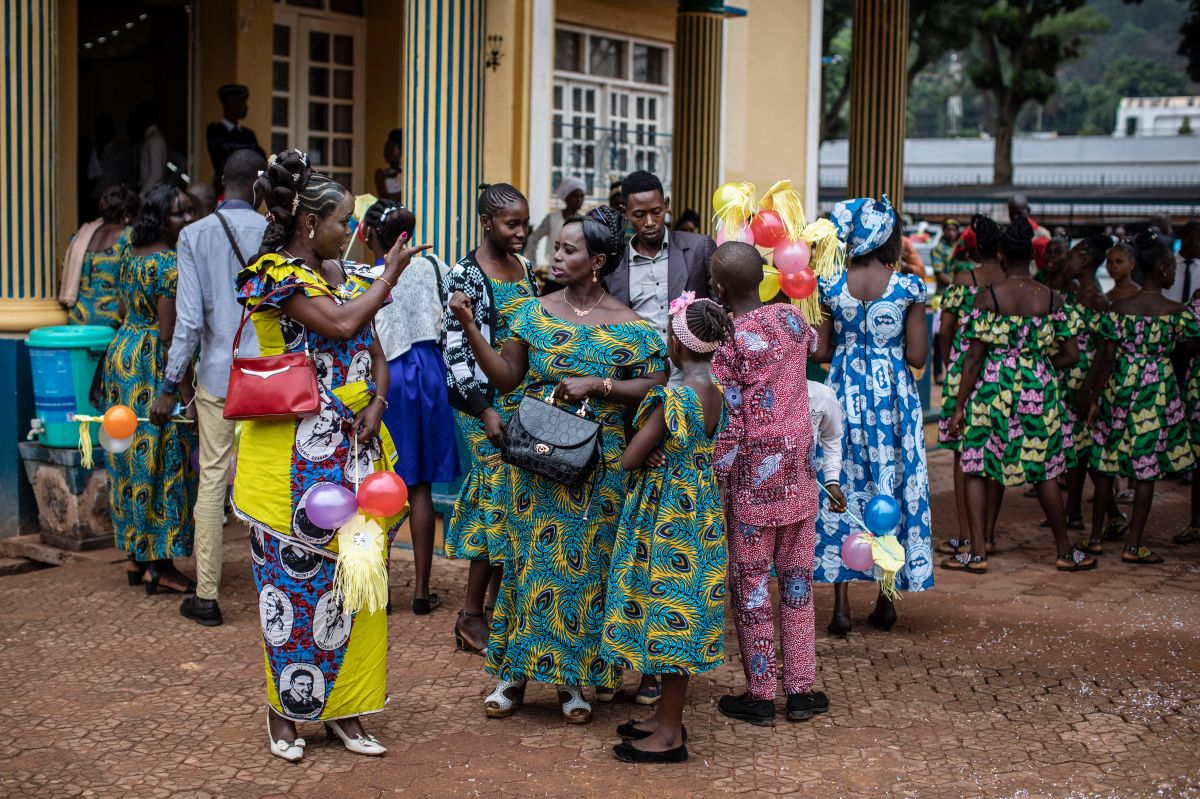A man in the Democratic Republic of Congo, in Africa, married triplets last month despite opposition from his parents.
Luwizo, as the media has identified the African, married Natasha, Natalie and Nadege in an unusual ceremony. “People consider it impossible for three women to share a husband, but for us, sharing everything has been our life since childhood,” Natalie told Afrimax.
Both Luwizo and the women claim to be in love.
Initially, Luwizo fell in love with Natalie, the first of the triplets he met on Facebook.As their communication deepened, they decided to meet in person.
But it turns out that the other two also fell in love with him, or so they say. Due to the close bond that unites them, the women required him to marry them too.
“At first, when we told him that he had to marry all of us, he was surprised. But since he had already fallen in love Of all of us, nothing could stop our plans, since we were also in love with him. People consider it impossible for three women to share a husband, but for us, sharing everything has been our life since childhood”, argued Natalie to the aforementioned medium referred to by upsocl.com.
“I was forced to marry all of them because they are triplets. It was not an easy decision because until now my parents do not understand what I am doing”, added the man.
The Luwizo parents are not happy with their son’s decision and did not attend the ceremony.
“You have to lose to win. Also, you have your preferences and your way of doing things. So I’m happy to marry the triplets no matter what anyone else thinks. My parents despised my decision, that’s why they didn’t attend my wedding. But all I can say is that love has no limits”, pointed out the newlywed.
Although for some this story may sound funny and even desirable, the reality is that cases like of these sisters hide an oppressive reality.
In sub-Saharan Africa, millions of women continue to live in polygamous relationships, a centuries-old practice. Years ago, African men who wanted to have a large family to cultivate the land resorted to this practice, according to a report by the 2018 of the Associated Press. In other cases, supporters of this practice base themselves on religious arguments to perpetuate it, to the detriment of women’s rights.
According to the United Nations ( UN), entity that opposes this practice, the policy was legal or generally accepted in 33 countries, 25 of them in Africa, at least until 2009.
Activists fight for governments to enact laws that protect the dignity of women and reject religious arguments in favor of this modality that increases the risk of disease and poverty.
